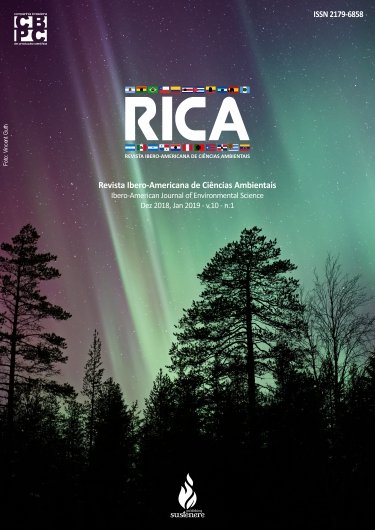Social-environmental vulnerability: an analysis of the indicators in the city of Natal/RN
DOI:
https://doi.org/10.6008/CBPC2179-6858.2019.001.0027Keywords:
Indicators, Vulnerability, UrbanAbstract
Indicators can be understood as a measure that seeks to synthesize relevant information from a given phenomenon, analyzing its behavior over a temporal space. When used to analyze socio-environmental vulnerability, the use of this tool becomes fundamental, since it allows the identification of vulnerable neighborhoods and facilitates their temporal monitoring, making possible the monitoring of the analyzed variables. In this sense, this article aims to analyze the socio-environmental vulnerability of the city of Natal/RN, based on a set of indicators that emphasize social and environmental issues and characterize the Brazilian urban scenario. For that, an exploratory and descriptive study was carried out, through bibliographical and documentary research. The results indicate that the level of socio-environmental vulnerability for the city of Natal was 0.4709, classified as 'High'. This result is considered unsatisfactory and worrying because it puts the city facing many problems that require urgency in its resolution, in order to guarantee minimum conditions of quality of life for its citizens. However, it is important to stress the importance of analyzing the city with a more targeted look at each theme and each indicator analyzed and identifying which ones need more attention to mitigate the issues that involve them.
Downloads
Downloads
Published
Issue
Section
License
The CBPC - Companhia Brasileira de Produção Científica (Brazil CNPJ: 11.221.422/0001-03) the material rights of the published works. The rights relate to the publication of the work anywhere in the world, including rights to renewals, expansions and dissemination of the contribution, as well as other subsidiary rights. All electronically published works may subsequently be published in printed collections under the coordination of this company and / or its partners. The authors preserve the copyright, but are not allowed to publish the contribution in another medium, printed or digital, in Portuguese or in translation.









